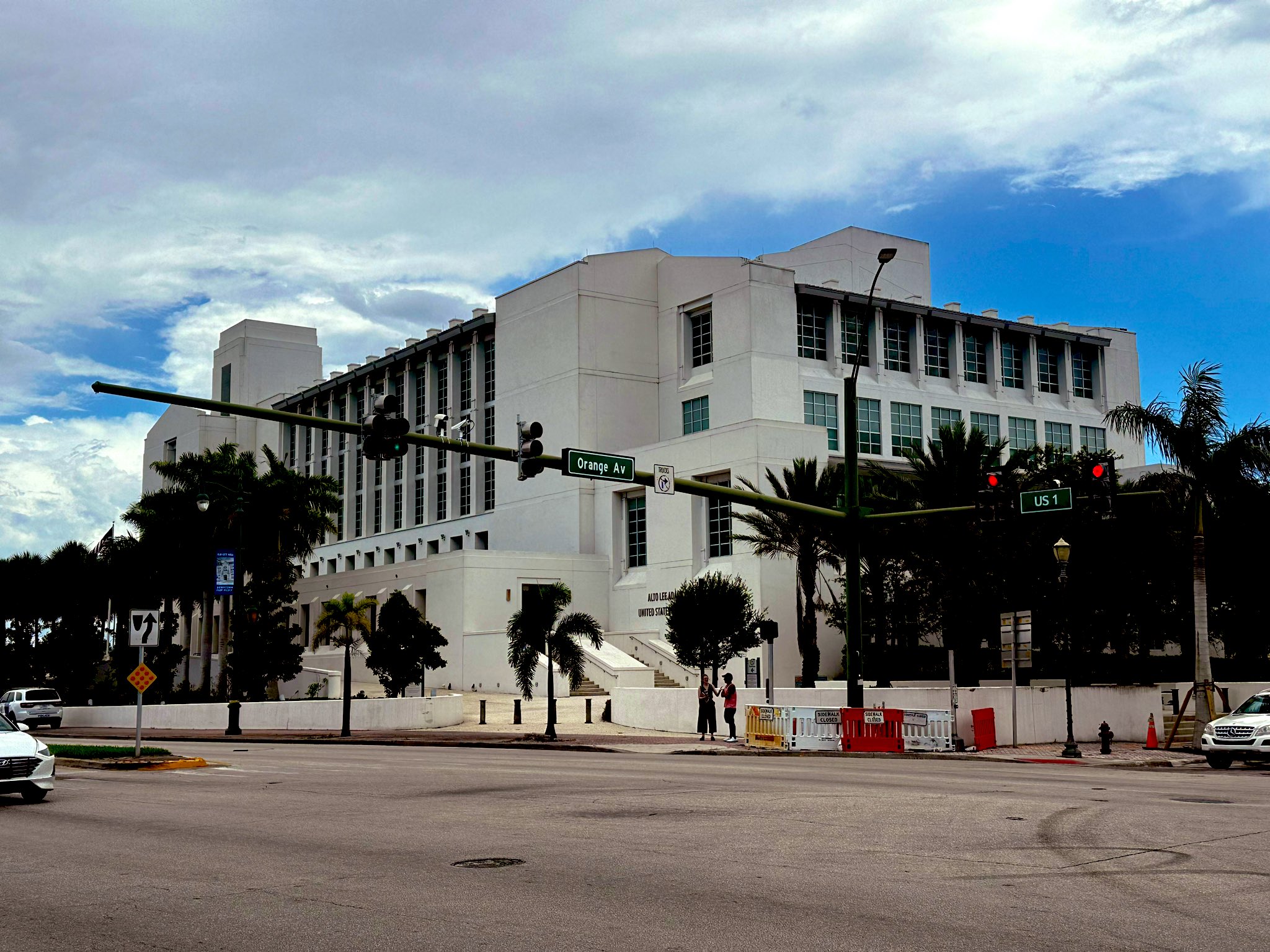Don’t Subpoena Testimony from the President
Discussions between the president’s legal team and special counsel’s legal team about whether the president will sit down to answer questions have apparently gotten serious—serious enough that Special Counsel Robert Mueller’s team has discussed an extensive list of possible questions with the president’s attorneys.
Published by The Lawfare Institute
in Cooperation With

Discussions between the president’s legal team and special counsel’s legal team about whether the president will sit down to answer questions have apparently gotten serious—serious enough that Special Counsel Robert Mueller’s team has discussed an extensive list of possible questions with the president’s attorneys. Unsurprisingly, the questions range from what the president knew about the relationship between his campaign officials and Russian operatives to what the president was thinking when he fired FBI director James Comey. Mueller apparently thinks his investigation will not be sufficiently comprehensive if he does not speak directly with President Trump. The president, for his part, is characteristically confident in his ability to talk his way out of trouble.
The question is what happens if the president refuses to meet with investigators and Mueller issues a subpoena to compel his testimony before a grand jury. Some have been quick to assume that Mueller could successfully force the president to testify, asking instead whether the president could reasonably assert Fifth Amendment rights or seek to delay the proceedings by asserting executive privilege over key pieces of information. The former would quite likely undermine the president’s central message he has done nothing wrong: Although the innocent can and should often take the Fifth, the public is likely to infer guilty motives. It would be a high-risk strategy to count on political allies sticking with a president who is “hiding” behind the Fifth Amendment.
Asserting executive privilege to deflect Mueller might only delay the inevitable and would carry political costs of its own. As Steve Vladeck and Benjamin Wittes note, neither the Fifth Amendment nor executive privilege would provide the basis for a blanket refusal of the president to provide testimony, though they might provide reasons for refusing to answer some specific questions.
But we should not be so quick to assume that Mueller could compel the president’s testimony. Seeking a subpoena to force the president to testify would set up a constitutional showdown over the scope of judicial authority over a sitting president—a showdown that neither Mueller nor the courts should wish for.
While Trump might not be in the best position to defend a claim that presidents should not be compelled by courts to testify, the case that the judiciary possesses such an authority is hardly an easy one. Presidents have in the past avoided testing the issue by voluntarily agreeing to testify when necessary. After much delay, Bill Clinton eventually consented to giving testimony to independent counsel Kenneth Starr under carefully negotiated conditions. Other presidents have likewise chosen to cooperate when asked to testify.
Previous Supreme Court cases have stopped well short of asserting a judicial power to subpoena presidential testimony in a criminal case. When President Richard Nixon refused to turn over the White House tapes to Special Prosecutor Leon Jaworski, Jaworski sought a subpoena duces tecum to require the production of the tapes and related documents. In United States v. Nixon, a unanimous Supreme Court brushed aside Nixon’s assertion of privilege. Chief Justice Warren Burger argued that the “administration of criminal justice” and the “basic function of the court” in providing justice would be undercut by a general claim of privilege that would keep White House documents outside of judicial scrutiny. If the president was in possession of evidence directly relevant to a criminal proceeding, the courts could reasonably command the president to make that evidence available.
When Bill Clinton asked the courts to dismiss Paula Jones’ civil suit arising from his conduct out of the presidential office, a unanimous Supreme Court ruled in Clinton v. Jones that the president did not possess “the broad immunity from all civil damages suits.” The court’s language in Jones was sometimes sweeping: It insisted on the right of the courts to exercise their “traditional Article III jurisdiction” even in cases involving the president, and held that the “burden on the President’s time and energy” from participating in judicial proceedings “cannot be considered as onerous as the direct burden imposed by judicial review and occasional invalidation of his official actions.” But the court cautioned that judges should exercise “judicial discretion” to “accommodate the President’s needs” and give “the utmost deference to Presidential responsibilities.”
If Mueller forced the Roberts court to decide the specific question of whether the president could be issued a subpoena ad testificandum, there are at least two considerations that should weigh on the minds of the justices and that might give them pause before extending the logic of United States v. Nixon and Clinton v. Jones.
First are the structural constitutional considerations that counsel against empowering the courts to compel presidential testimony. In earlier cases, the Supreme Court has insisted that the president is not above the law and that courts would not be seeking to perform an executive function by subjecting the president to judicial proceedings. But the question is not whether the president is immune from all legal proceedings. The question is merely whether a judge can compel the person of the president. Thomas Jefferson worried about the possibility that “the several courts could bandy him from pillar to post ... and withdraw him entirely from his constitutional duties.” Oliver Ellsworth insisted that a court could not “exercise any Authority over [the person of the president] and Stop the Whole Machine of Government.” Joseph Story thought it was a necessary implication of vesting all executive authority in a single person that the president could not be liable to judicial proceedings that would impair his ability to “discharge ... the duties of his office.”
There are many judicial proceedings that are perfectly compatible with the president’s ability to perform his duties, and the Supreme Court has previously stressed that the particular actions it authorized in the cases of Nixon and Clinton were so compatible. The court was certainly right in the Jones case to observe that presidents have been able to find ways to make giving voluntary testimony fit within their duties, and Vladeck and Wittes reasonably argue that it is a short step from the court making that observation in the case of Bill Clinton to the court commanding testimony in the case of Donald Trump. It is surely the case that Trump is able to carve some minutes or hours from his “executive time” to give testimony.
For the courts to claim the power to command the president to testify and to dictate how it is to be done, however, intrudes on the core functioning of a coordinate branch. It no more puts the president “above the law” to acknowledge that he cannot be subpoenaed to testify than to acknowledge that he cannot be put in jail for defying such a subpoena. The court in Clinton v. Jones highlighted the question of whether legal proceedings would be a burdensome “distraction” to the president and concluded that they would not be. In light of how the Lewinsky scandal consumed the Clinton presidency, one might well question the judicial confidence that ongoing litigation would not be a detriment to a functioning presidency. But ultimately presidential distraction was not the problem that Attorney General William Wirt had in mind when he concluded in 1818 that “personal attendance on the court” was inconsistent with the president’s duties to the nation. His concern was that the president’s movements and time could not, consistent with his constitutional duties, be under the command of a judge.
Alexander Hamilton noted that the president was the one constitutional officer whose work could be characterized by “decision, activity, secrecy, and dispatch,” and argued that having such an officer was essential to the national interest. If modern transportation and communication technology have alleviated some of Jefferson’s concerns that the president might be called hither and yon by trial judges spread all across the nation, the demands of the modern American government have only heightened the concerns that the president at all times be available for addressing the nation’s business without the necessity of asking leave from a judge. It would be one thing if the subpoena power is to be hollowed out such that the president can dictate to the judge when and how testimony will be offered. But the justices should be reluctant to empower a judge to command the president’s presence no matter the president’s own judgment that he or she is immediately needed elsewhere. Not all presidents will have the relaxed daily schedule that Trump has so far enjoyed.
Second is the political calculus of constitutional hardball. The question at issue is whether the courts should move from working with the president to secure his voluntary testimony in legal proceedings to attempting to command the president to appear before a court.
American courts have not had much recent experience with political defiance of judicial orders. This has made them a bit complacent, and perhaps even reckless. For better or for worse, the fear of defiance has long been an important constraint on judicial power; Chief Justice John Marshall’s opinion in Marbury v. Madison was celebrated precisely because Marshall managed to chastise the Jefferson administration and assert a power of judicial review without exposing the court’s political vulnerability by issuing an order that the president might not obey. Marshall counseled his colleagues not to “butt[] against a wall in sport” and to take care not to enter into unwinnable clashes with other political institutions.
In the early republic, the court often exercised the “passive-aggressive virtues” of making bold claims but not issuing bold judicial orders that could be disobeyed. Uncertainty about compliance in hotly contested political disputes once counseled judges not to try testing their strength by mandating that a president defy Congress on the course of Reconstruction or that a legislature redraw the electoral map.
That same dynamic holds true today. Courts should be reluctant to back presidents into a corner—and this Supreme Court should perhaps be particularly cautious about backing this president into a corner. Trump’s attitude toward the judiciary has generated an unusual level of concern. He has shown a sometimes shocking willingness to rhetorically undermine the authority and dignity of the courts and individual judges. Judges should at least be cognizant of the possibility that Trump might choose to take the extraordinary step of ignoring a judicial order, especially one that threatened his core personal interests. If the special counsel were to seek a subpoena ad testificandum, then the president might well determine that such action precipitated the necessity of removing the special counsel and putting in his stead a counsel capable of conducting the investigation without unduly interfering with the president’s ability to perform his constitutional functions (as the president himself, as chief executive, understands those functions and their requirements).
Although judges might hope and expect that other political officeholders would rally to the support of the judiciary in the case of a conflict of wills with the White House, they should try to avoid that situation if they can. And Mueller can avoid putting the courts in that situation by concluding his investigation without trying to force the testimony of the president. In the end, Mueller will have to leave in the hands of Congress the question of how to respond to any presidential misconduct during the campaign or since. His report might be less comprehensive without the president’s testimony, but Congress is best positioned to force more details from the White House or take action against an intransigent president, if they have the will to do so. If Congress itself does not have the will to confront the White House, then Mueller should think twice before insisting that the courts step into the breach.
Nixon flirted with the possibility of defying the Supreme Court after it demanded that he turn over the Watergate tapes. Ultimately, he abandoned that option only after Republican legislators made it clear that he would not survive an impeachment if he took that step. The authority of the court was backed by the will of Congress to remove the president. Could the court count on the current Republican Congress to do the same? Do they really want to find out?




